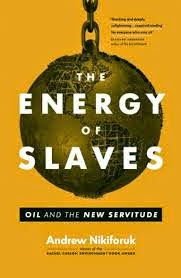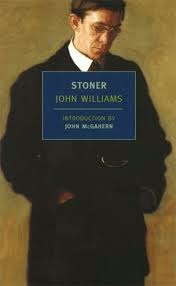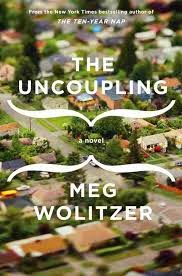 More and more, it's becoming a struggle to find a book worth reading. The classics no longer seem relevant to my life. Contemporary novels (half of which seem to be set among the cultural elite in NYC) don't do much for me either. Travel books all seem so wimpy and unambitious. Lately, I've had to resort to nonfiction science writing and biographies. For every four books I start, three are given up by page 30.
More and more, it's becoming a struggle to find a book worth reading. The classics no longer seem relevant to my life. Contemporary novels (half of which seem to be set among the cultural elite in NYC) don't do much for me either. Travel books all seem so wimpy and unambitious. Lately, I've had to resort to nonfiction science writing and biographies. For every four books I start, three are given up by page 30.
I'd love it if someone, whose tastes are similar to my own, would give me a syllabus of decent books to read to save me the trouble of sampling and discarding so many. With that in mind, I've decided to list my favorite books for those of you who may also be struggling to find a decent book.
Many books that I admire and respect, but that didn't agree with me (Joyce's Ulysses for instance), didn't make this list. These are simply my favorites. Still, many of my favorites didn't make this list because I felt that they wouldn't appeal to most readers, or maybe I fell in love with them at an impressionable age. And there are many books that I liked that I've regrettably culled; these are books that I loved. I chose the following because they were enriching, entertaining, or beautifully written (or all of the above), and would appeal to the general lover of books. They aren't listed in any particular order, except by genre and alphabetical order by author.
Pride and Prejudice by Jane Austen
Sense and Sensibility by Jane Austen
Robinson Crusoe by Daniel Defoe
Middlemarch by George Eliot
The Mill on the Floss by George Elliot
Tess of the D’Urbervilles by Thomas Hardy
Fiction 1900 - Present
Cloudsplitter by Russell Banks
Robinson Crusoe by Daniel Defoe
Middlemarch by George Eliot
The Mill on the Floss by George Elliot
Tess of the D’Urbervilles by Thomas Hardy
Fiction 1900 - Present
Cloudsplitter by Russell Banks
The Corrections by Jonathan Franzen
Freedom by Jonathan Franzen
Catch-22 by Joseph Heller
For Whom the Bell Tolls by Ernest Hemingway
Ordinary Wolves by Seth Kantner
The Night Thoreau Spent in Jail by Robert Edwin Lee and Jerome Lawrence
Call of the Wild by Jack London
The Road by Cormac McCarthy
1984 by George Orwell
Lolita by Vladimir Nabokov
Grapes of Wrath by John Steinbeck
The Lord of the Rings by J.R.R. Tolkien
Stoner by John Williams
Game of Thrones series by George R.R. Martin
The First Fifteen Lives of Harry August by Claire North
I, Robot by Isaac Asimov
Poldark series by Winston Graham
High Fidelity by Nick Hornby
Non-Fiction - Travel/Nature
Desert Solitaire by Ed Abbey
Freedom by Jonathan Franzen
Catch-22 by Joseph Heller
For Whom the Bell Tolls by Ernest Hemingway
Ordinary Wolves by Seth Kantner
The Night Thoreau Spent in Jail by Robert Edwin Lee and Jerome Lawrence
Call of the Wild by Jack London
The Road by Cormac McCarthy
1984 by George Orwell
Lolita by Vladimir Nabokov
Grapes of Wrath by John Steinbeck
The Lord of the Rings by J.R.R. Tolkien
Stoner by John Williams
Game of Thrones series by George R.R. Martin
The First Fifteen Lives of Harry August by Claire North
I, Robot by Isaac Asimov
Poldark series by Winston Graham
High Fidelity by Nick Hornby
Non-Fiction - Travel/Nature
Desert Solitaire by Ed Abbey
A Walk in the Woods by Bill Bryson
The Writing Life by Annie Dillard
Pilgrim at Tinker Creek by Annie Dillard
Eat, Pray, Love by Elizabeth Gilbert
Kon-Tiki by Thor Heyerdahl
On Nature: Selected Essays by Edward Hoagland
A Walk across America by Peter Jenkins
Into the Wild by Jon Krakauer
A Sand County Almanac by Aldo Leopold
Arctic Dreams by Barry Lopez
West with the Night by Beryl Markham
Colossus of Maroussi by Henry Miller
Never Cry Wolf by Farley Mowat
A Short Walk in the Hindu Kush by Eric Newby
Wind, Sand, and Stars by Antoine de Saint-Exupéry
Iron and Silk by Mark Salzman
Wolf Willow by Wallace Stegner
501 Minutes to Christ by Poe Ballantine
Non-Fiction - Philosophy
Consumed by Benjamin Barber
Unsettling of America by Wendell Berry
The Power of Myth by Joseph Campbell and Bill Moyers
Dumbing Us Down by John Taylor Gatto
The Prophet by Kahlil Gibran
A Tolerable Anarchy by Jedediah Purdy
Walden by Henry David Thoreau
Abstract Wild by Jack Turner
Theory of the Leisure Class by Thorstein Veblen
But What If We're Wrong? by Chuck Klosterman
Tribe by Sebastian Junger
Non-Fiction - Memoir/Autobiography/Essays
Nickel and Dimed by Barbara Ehrenreich
The Writing Life by Annie Dillard
Pilgrim at Tinker Creek by Annie Dillard
Eat, Pray, Love by Elizabeth Gilbert
Kon-Tiki by Thor Heyerdahl
On Nature: Selected Essays by Edward Hoagland
A Walk across America by Peter Jenkins
Into the Wild by Jon Krakauer
A Sand County Almanac by Aldo Leopold
Arctic Dreams by Barry Lopez
West with the Night by Beryl Markham
Colossus of Maroussi by Henry Miller
Never Cry Wolf by Farley Mowat
A Short Walk in the Hindu Kush by Eric Newby
Wind, Sand, and Stars by Antoine de Saint-Exupéry
Iron and Silk by Mark Salzman
Wolf Willow by Wallace Stegner
501 Minutes to Christ by Poe Ballantine
Non-Fiction - Philosophy
Consumed by Benjamin Barber
Unsettling of America by Wendell Berry
The Power of Myth by Joseph Campbell and Bill Moyers
Dumbing Us Down by John Taylor Gatto
The Prophet by Kahlil Gibran
A Tolerable Anarchy by Jedediah Purdy
Walden by Henry David Thoreau
Abstract Wild by Jack Turner
Theory of the Leisure Class by Thorstein Veblen
But What If We're Wrong? by Chuck Klosterman
Tribe by Sebastian Junger
Non-Fiction - Memoir/Autobiography/Essays
Nickel and Dimed by Barbara Ehrenreich
The Discomfort Zone by Jonathan Franzen
The Stars, the Snow, the Fire by John Haines
Angela’s Ashes by Frank McCourt
Denial by Jonathan Rauch
Me Talk Pretty One Day by David Sedaris
Naked by David Sedaris
Non-Fiction - History
Guns, Germs, and Steel by Jared Diamond
The Stars, the Snow, the Fire by John Haines
Angela’s Ashes by Frank McCourt
Denial by Jonathan Rauch
Me Talk Pretty One Day by David Sedaris
Naked by David Sedaris
Essays from the Nick of Time by Mark Slouka
Non-Fiction - History
Guns, Germs, and Steel by Jared Diamond
Founding Brothers by Joseph Ellis
Midnight Rising by Tony Horwitz
The Endurance by Alfred Lansing
Midnight Rising by Tony Horwitz
The Endurance by Alfred Lansing
Wilderness and the American Mind by Roderick Nash
In the Heart of the Sea by Nathaniel Philbrick
Sex at Dawn by Christopher Ryan and Cacilda Jethá
Sapiens by Yuval Noah Harari
Non-Fiction - Biography
Che by Jon Lee Anderson
In the Heart of the Sea by Nathaniel Philbrick
Sex at Dawn by Christopher Ryan and Cacilda Jethá
Sapiens by Yuval Noah Harari
Non-Fiction - Biography
Che by Jon Lee Anderson
Team of Rivals by Doris Kearns Goodwin
The Days of Henry Thoreau by Walter Harding
Where Men Win Glory by Jon Krakauer
Henry Thoreau: Life of the Mind by Robert Richardson
Saint Joan of Arc by Vita Sackville-West
Grant by Ron Chernow
Washington: A Life by Ron Chernow
Non-Fiction - Special Interest
How to Win Friends and Influence People by Dale Carnegie
The Days of Henry Thoreau by Walter Harding
Where Men Win Glory by Jon Krakauer
Henry Thoreau: Life of the Mind by Robert Richardson
Saint Joan of Arc by Vita Sackville-West
Grant by Ron Chernow
Washington: A Life by Ron Chernow
Non-Fiction - Special Interest
How to Win Friends and Influence People by Dale Carnegie
Suburban Nation by Andres Duany and Elizabeth Plater-Zyberk
What We Know about Climate Change by Kerry Emanuel
Story by Robert McKee
The Conundrum by David Owen
Omnivore’s Dilemma by Michael Pollan
The Social Conquest of Earth by E.O. Wilson
What We Know about Climate Change by Kerry Emanuel
Story by Robert McKee
The Conundrum by David Owen
Omnivore’s Dilemma by Michael Pollan
The Social Conquest of Earth by E.O. Wilson
























